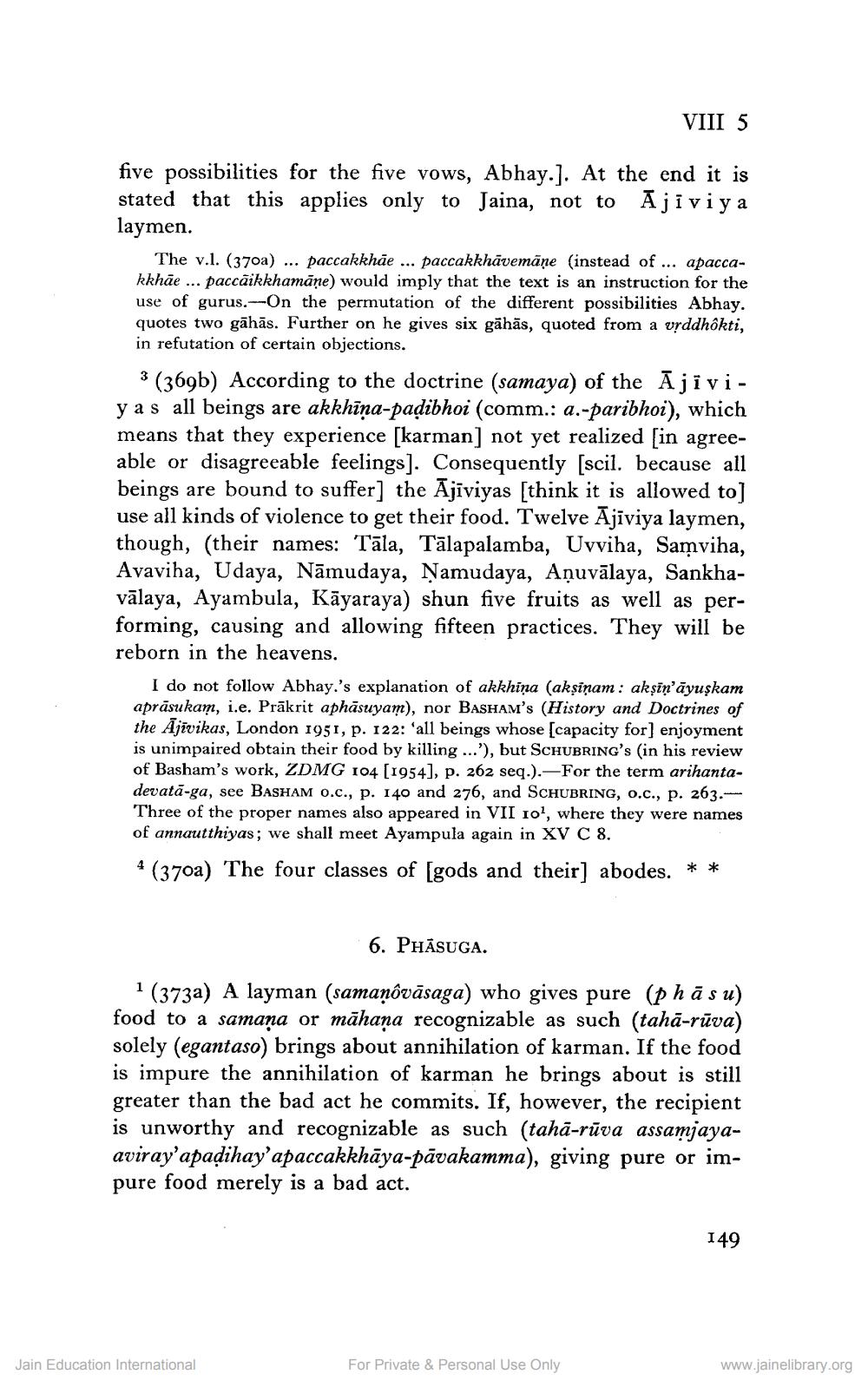________________
VIII 5
five possibilities for the five vows, Abhay.]. At the end it is stated that this applies only to Jaina, not to Ajiviya laymen.
The v.1. (370a) ... paccakkhae ... paccakkhāvemane (instead of... apaccakkhāe ... paccāikkhamāṇe) would imply that the text is an instruction for the use of gurus.--On the permutation of the different possibilities Abhay. quotes two gāhās. Further on he gives six gāhās, quoted from a vṛddhôkti, in refutation of certain objections.
3 (369b) According to the doctrine (samaya) of the Ājïviy as all beings are akkhīņa-paḍibhoi (comm.: a.-paribhoi), which means that they experience [karman] not yet realized [in agreeable or disagreeable feelings]. Consequently [scil. because all beings are bound to suffer] the Ajiviyas [think it is allowed to] use all kinds of violence to get their food. Twelve Ajiviya laymen, though, (their names: Tala, Talapalamba, Uvviha, Samviha, Avaviha, Udaya, Nāmudaya, Ņamudaya, Aṇuvālaya, Sankhavalaya, Ayambula, Käyaraya) shun five fruits as well as performing, causing and allowing fifteen practices. They will be reborn in the heavens.
I do not follow Abhay.'s explanation of akkhiņa (akṣiņam: akṣin'āyuşkam aprāsukam, i.e. Prākrit aphāsuyam), nor BASHAM's (History and Doctrines of the Ajivikas, London 1951, p. 122: 'all beings whose [capacity for] enjoyment is unimpaired obtain their food by killing ...'), but SCHUBRING's (in his review of Basham's work, ZDMG 104 [1954], p. 262 seq.). For the term arihantadevata-ga, see BASHAM O.C., p. 140 and 276, and SCHUBRING, o.c., p. 263.Three of the proper names also appeared in VII 101, where they were names of annautthiyas; we shall meet Ayampula again in XV C 8.
*(370a) The four classes of [gods and their] abodes. * *
6. PHASUGA.
1 (373a) A layman (samaṇôvāsaga) who gives pure (phās u) food to a samana or māhaṇa recognizable as such (tahā-rūva) solely (egantaso) brings about annihilation of karman. If the food is impure the annihilation of karman he brings about is still greater than the bad act he commits. If, however, the recipient is unworthy and recognizable as such (taha-rūva assamjayaaviray'apadihay' apaccakkhāya-pāvakamma), giving pure or impure food merely is a bad act.
Jain Education International
For Private & Personal Use Only
149
www.jainelibrary.org




